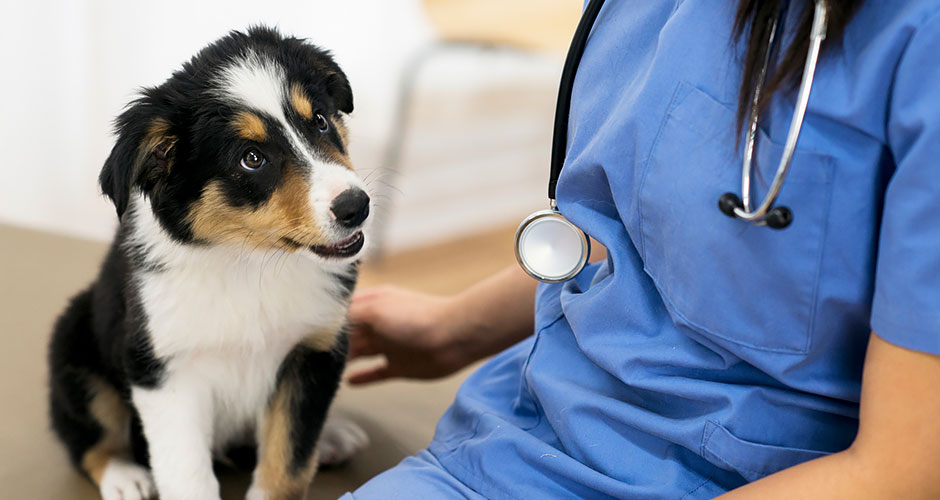
SAVE AN EXTRA $5 - $20 OFFUse code PETS in cart (Exclusions apply)

Save 40% with first AutoShipUse code NEW40 (Up to $40 max. Exclusions apply)

While efforts are made to answer all questions as quickly as possible, if an immediate answer is required or if your pet is in need of urgent or emergency care, contact your pet's veterinarian immediately.

You will receive an answer from Dr. Lindsay and our vet/tech team as soon as possible, usually the same day.
All answers are provided for informational or educational purposes only, and are intended to be a supplement to, and not a substitute for, the expertise and professional judgment of your pet's veterinarian.
It may be necessary to consult your pet's veterinarian regarding the applicability of any opinions or recommendations with respect to your pet's symptoms or medical condition.
Close
An error has occurred, please reload the page and try again.
Close
While efforts are made to answer all questions as quickly as possible, if an immediate answer is required or if your pet is in need of urgent or emergency care, contact your pet's veterinarian immediately.
There is no answer related to your question

Every pet parent wants their dog to live a long, happy life. Preventative care is key to catching illnesses early and keeping your dog as healthy and pain-free as possible. One of the most important ways to protect your dog’s health is to see your veterinarian at least once a year for a wellness checkup.
When you first bring home your new dog or puppy, schedule a wellness visit as soon as possible so your veterinarian can get baseline information about your pup’s health. At this time, you can also discuss feeding, vaccines, and any other concerns or questions you might have about your dog’s health and care.
Bringing home a puppy? Dr. Lindsay Butzer, DVM recommends seeing your veterinarian within the first 72 hours of your pup’s homecoming.
For adult dogs 11 months and older, you can hold off on the first appointment for up to a week while your dog settles in, so long as there are no existing health concerns.
Once your dog has had their initial checkup and has been brought up-to-date on their vaccines, they should have annual wellness visits.
During your dog’s annual wellness visit, your veterinarian will weigh your dog, ensure that their eyes and ears are clear and free of infection, and listen to their heart and lungs using a stethoscope. They may also take a blood sample to assess organ function, electrolyte levels, and hormones. Make sure to bring a fecal sample, which your veterinarian will use to test for internal parasites.
Puppies should complete their core vaccination schedule to prevent serious, life-threatening viral infections. Typically, puppies have a series of three rounds of core vaccines with boosters scheduled about three to four weeks apart to protect against distemper, parvovirus, parainfluenza, and adenovirus.
Your puppy will also receive their first rabies vaccine during their first year of life. They’ll need a booster a year later, then an additional booster every three years or as required by your local laws.
Your veterinarian may recommend other vaccines, which may include vaccinations for bordetella (kennel cough), leptospirosis, and Lyme disease, depending on whether your dog will be boarded, will have an active outdoor lifestyle, or is likely to frequent dog parks.
Spaying and neutering, or getting your dog “fixed,” are routine surgical procedures that eliminate your dog’s ability to reproduce.
When a female dog is spayed, her ovaries and uterus are removed. An unspayed dog goes into heat every six to nine months. When a dog goes into heat, for a three-week period she will produce discharge and become receptive to mating, and can become pregnant. A spayed dog will not have a heat cycle, and will not be likely to roam in search of a mate.
When a male dog is neutered, his testicles are removed. He may be less likely to develop aggressive behaviors, and may be less likely to roam in search of a mate. Neutering can also lessen your male dog’s urge to lift his leg and mark his territory, especially indoors.
Your puppy can be spayed or neutered as early as six weeks of age. Many puppies and dogs are already spayed or neutered prior to adoption, especially if adopted from a shelter or rescue. If your dog has not yet been ‘“fixed,” talk to your veterinarian about scheduling the procedure.
Even with preventative care, it’s almost inevitable that your dog will one day experience an unexpected injury or illness. To give your dog the best chance at a speedy recovery and to minimize unnecessary pain, seek veterinary care as soon as you notice any concerning symptoms.
Tip: Plan for unexpected vet bills by signing up for pet insurance.
Call your veterinarian first if your dog is ill or has suffered an injury. Depending on the nature of your dog’s condition, your veterinarian may allow you to schedule an appointment, squeeze you in for a same-day visit, or recommend that you seek emergency care.
Bypass the waiting room by opting for a veterinary telehealth appointment when possible. Schedule a same-day online appointment with VetLive for asking general questions, getting advice about nutrition or behavior, and treating certain health issues.
For medical emergencies that occur outside of your veterinarian's office hours, you may need to take your dog to an emergency vet hospital. Seek emergency veterinary care for potentially life-threatening issues like difficulty breathing, loss of consciousness, blood loss, seizures, and severe trauma.
Make sure you’re prepared for health issues and emergencies by saving your veterinarian’s contact information and that of an emergency veterinary hospital near you.